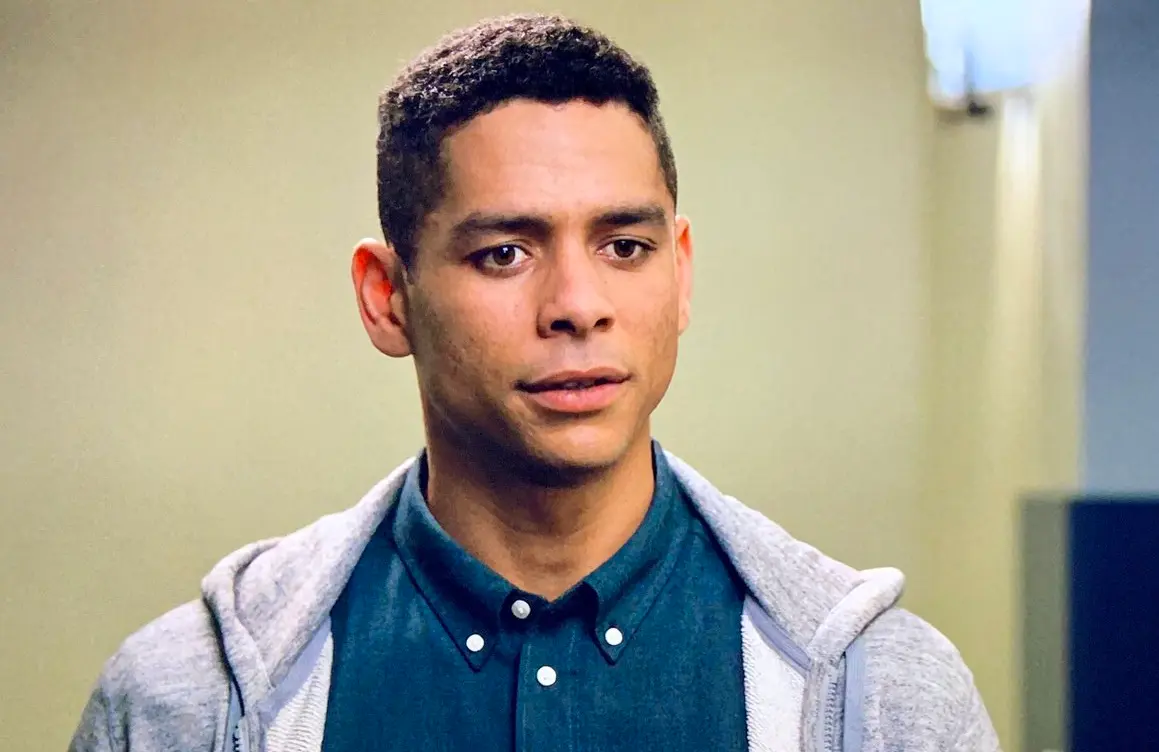Emmys 2019: Charlie Barnett Was More Than a Straight Man on Netflix’s Russian Doll
-
 Charlie Barnett in Russian Doll (Netflix)
Charlie Barnett in Russian Doll (Netflix)In the weeks leading up to the July 16th Emmy nominations, Primetimer staff and contributors will be making our picks for which people (and shows) we think deserve recognition for their work this year. For your consideration today: Charlie Barnett for Outstanding Supporting Actor in Netflix's Russian Doll.
“Once upon a time,” as Natasha Lyonne’s Nadia says in the season finale of Netflix’s twisty, existential comedy Russian Doll, there was “a very special boy” and “a very tough lady.”
An Emmy noimination for the “very tough lady” in question seems inevitable. Lyonne’s pronunciation of the word “cockroach” alone was the most conversation-provoking topic of February 2019, so it’s no surprise that she’s currently running just behind recent Emmy champs Julia Louis-Dreyfus (Veep) and Rachel Brosnahan (The Marvelous Mrs. Maisel) as a top contender for Outstanding Lead Actress in a Comedy. But portraying the very special boy was an equally demanding task. A variation of the old adage that Ginger Rogers did everything Fred Astaire did, but backwards and in high heels, would seem to apply here, making Charlie Barnett’s performance as Nadia’s partner in quantum crime equally deserving of recognition.
The ramrod-straight and orderly Alan at first appears to be the obverse of Nadia; Felix Unger to her Oscar Madison. Where Nadia is wild, he is contained. He wakes up to Beethoven. He brushes his teeth. He folds his clothes. He feeds his fish. Yet, what makes Barnett’s performance so extraordinary is the way he suggests there's more to Alan than meets the eye, a fact that's made clear from the get-go, when he turns to Nadia in a plummeting elevator to wearily explain, “it doesn’t matter, I die all the time.”

Beneath Alan’s straitlaced exterior, he is as deeply damaged as Nadia, but while she trumpets her dysfunction to everyone in her orbit, Alan’s mostly conceals his turmoil beneath the surface. Still, at any given moment, Barnett’s facial expressions shift imperceptibly to hint at a vast well of simmering rage, despair, and vulnerability, so that in the odd instances when these emotions break through, it doesn’t feel as though they’ve come out of nowhere. When Alan finally admits his first death was a suicide attempt, a lesser actor might not have foreshadowed it quite so brilliantly.
The role is certainly well-written, subverting these tropes and more by giving Alan a rich background and plenty of his own issues to work out with Nadia’s help (and vice versa), but it’s to Barnett’s credit that by the finale, Alan is just as fully realized a character as Nadia. In the season’s brilliant closing scenes, the evolution of Alan from an individual unable to save himself, to a man with the agency to do whatever it takes to save Nadia, feels wholly complete, and entirely earned.
Russian Doll would have been a perfectly enjoyable series if it had been solely Lyonne’s show, with Barnett simply providing her the framework to do her thing -- a supporting actor in every sense of the word -- but the Alan he created is a complex, nuanced character in his own right, one that ultimately elevates the entire series. For that alone, he is highly deserving of recognition as Outstanding Supporting Actor in a Comedy Series.
People are talking about Russian Doll in our forums. Join the conversation.
Jessica Liese has been writing and podcasting about TV since 2012. Follow her on Twitter at @HaymakerHattie.
TOPICS: Russian Doll, Netflix, 71st Primetime Emmy Awards, Charlie Barnett